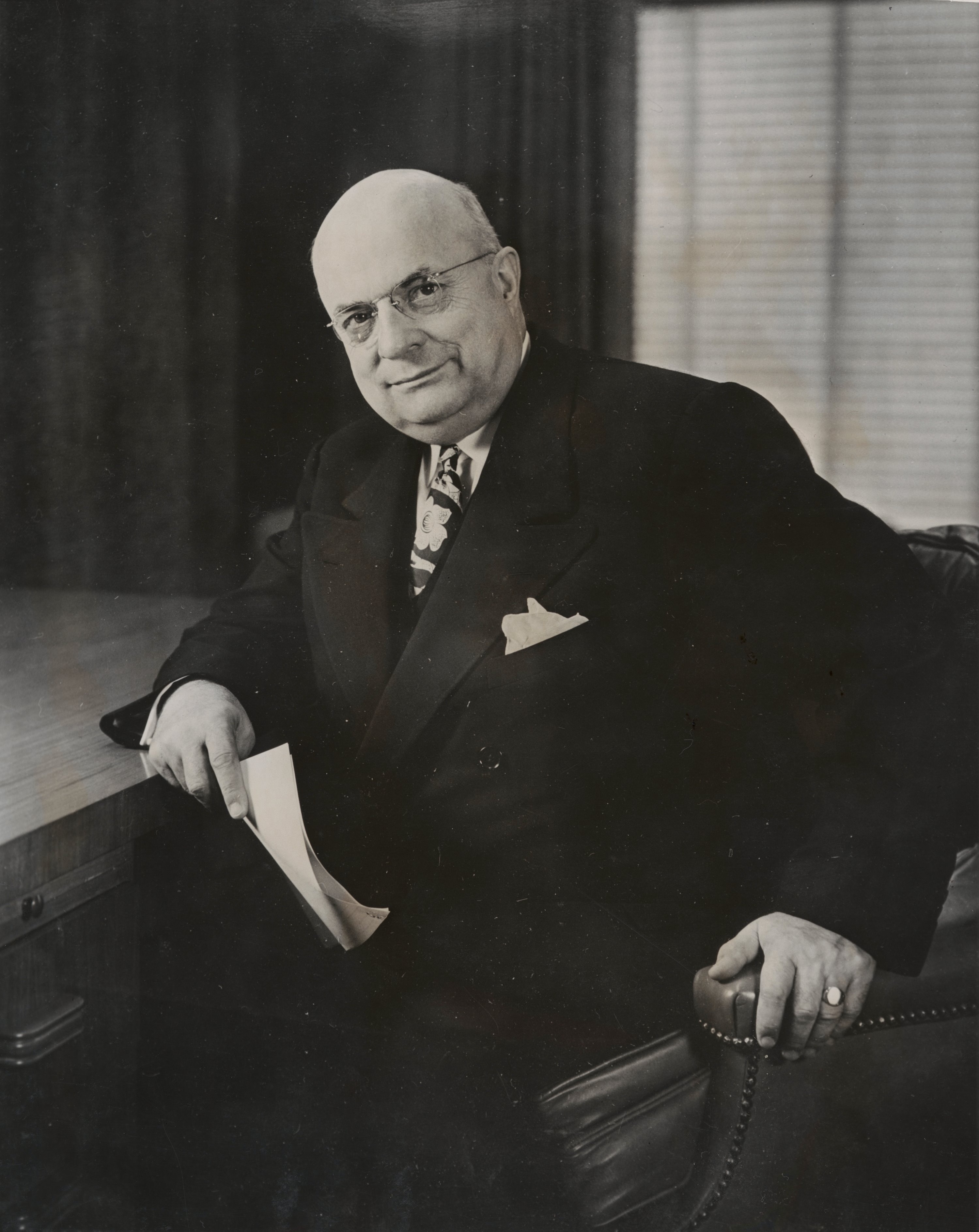Henry J. Kaiser

Business & Labor
(1882 – 1967)
Achievements
Biography current as of induction in 2009
Entrepreneur and industrialist Henry John Kaiser’s innovations in shipbuilding and in healthcare changed the course of history.
In 1913, Kaiser bought a failing road-building company, and over the next fifteen years built dams in California, levees in Mississippi, highways in Cuba and he was just getting started. In the 1930s, his company played a leading role in the construction of some of the 20th century’s most massive projects, including Hoover Dam and the Oakland-San Francisco Bay Bridge.
Although he had never manufactured cement before, when he lost the bid to build Shasta Dam, he
instead started a cement company to supply the six million tons of it needed for the project. And although he’d never built a ship before, he became known as the father of modern American shipbuilding.
When World War II began, he established seven shipyards – including four in Richmond, California – that produced more ships than any other in the United States. The methods he developed for mass production are still in use today.
After the war, he set his sights on other industries, including mining, steel and aluminum production, chemicals, automobiles, electronics, and aeronautics. But his greatest legacy may be his contribution to the health care industry. Kaiser understood the value of maintaining a good partnership with labor and of caring for his employees’ welfare. In 1938, he offered employees the world’s first prepaid health plan and in 1942 he founded what would become Kaiser Permanente, the nation’s largest health maintenance organization (HMO). In 1948 he established the Henry J. Kaiser Family Foundation, a non-profit organization that addresses the major health care issues facing the world.
From his first small road paving company to his global engineering empire, Kaiser was driven to build, to innovate, and to find solutions to problems that would have been roadblocks for the average person. “You can’t sit on the lid of progress,” he said, “If you do, you will be blown to pieces.”
View more inductees from the 4th class, inducted in 2009.
